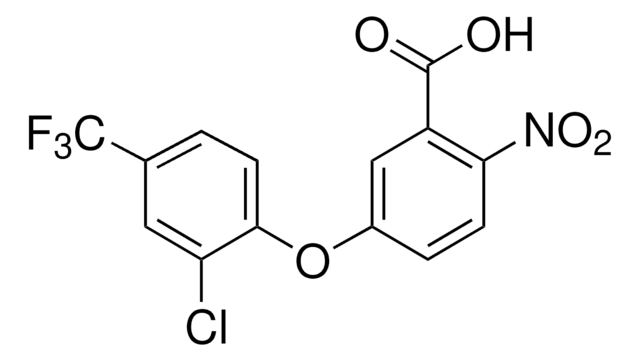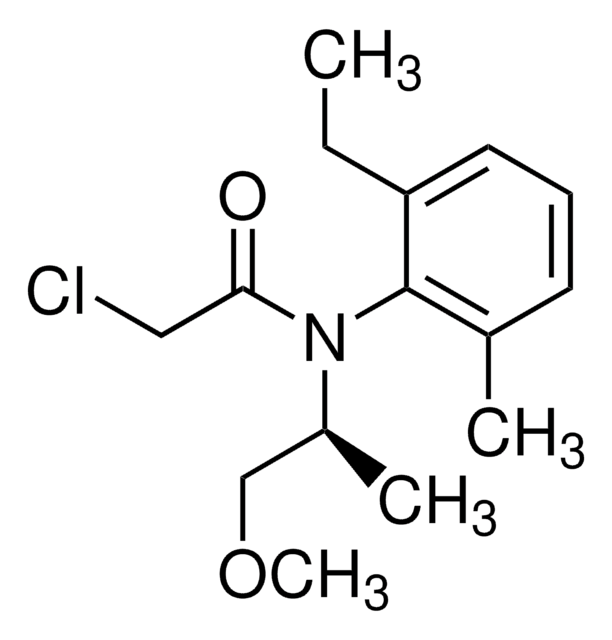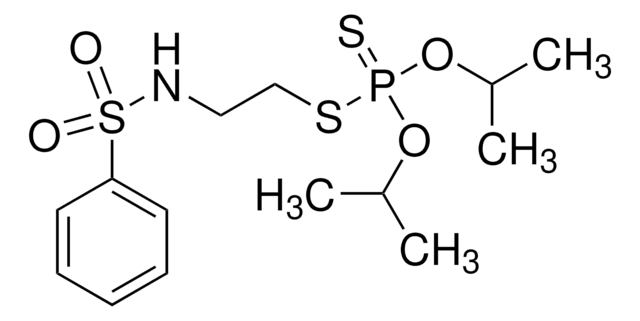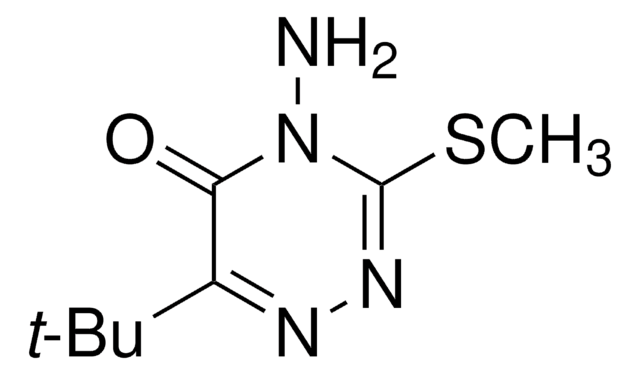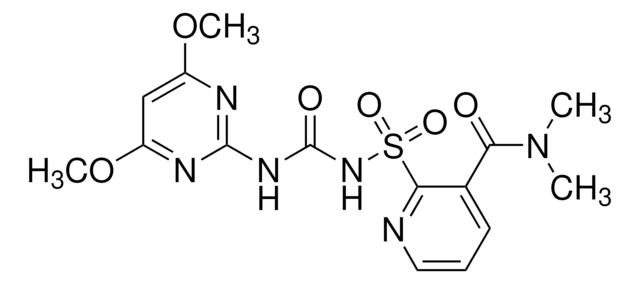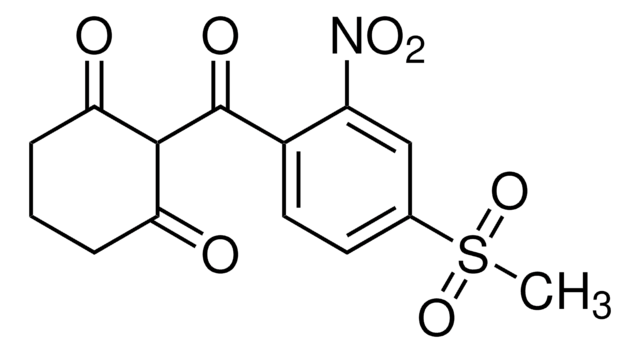33379
Acetochlor
PESTANAL®, analytical standard
Synonym(s):
2-Chloro-N-ethoxymethyl-N-(2′-ethyl-6′-methylphenyl) acetamide
About This Item
Recommended Products
grade
analytical standard
Quality Level
product line
PESTANAL®
shelf life
limited shelf life, expiry date on the label
technique(s)
HPLC: suitable
NMR: suitable
gas chromatography (GC): suitable
application(s)
agriculture
environmental
format
neat
SMILES string
CCOCN(C(=O)CCl)c1c(C)cccc1CC
InChI
1S/C14H20ClNO2/c1-4-12-8-6-7-11(3)14(12)16(10-18-5-2)13(17)9-15/h6-8H,4-5,9-10H2,1-3H3
InChI key
VTNQPKFIQCLBDU-UHFFFAOYSA-N
Looking for similar products? Visit Product Comparison Guide
General description
Application
Legal Information
Signal Word
Warning
Hazard Statements
Precautionary Statements
Hazard Classifications
Acute Tox. 4 Inhalation - Aquatic Acute 1 - Aquatic Chronic 1 - Carc. 2 - Repr. 2 - Skin Irrit. 2 - Skin Sens. 1 - STOT RE 2 - STOT SE 3
Target Organs
Kidney, Respiratory system
Storage Class Code
10 - Combustible liquids
WGK
WGK 2
Personal Protective Equipment
Choose from one of the most recent versions:
Already Own This Product?
Find documentation for the products that you have recently purchased in the Document Library.
Customers Also Viewed
Our team of scientists has experience in all areas of research including Life Science, Material Science, Chemical Synthesis, Chromatography, Analytical and many others.
Contact Technical Service



